50 Best Free Workout Apps For Women
-min.jpg)
Discover 50 best Free Workout Apps For Women that fit every fitness goal, at home, in the gym, or on the go. Start your fitness routine today!
You want to get fit at home, but the app store overwhelms you with choices and subscription traps. Finding reliable Workout Apps For Women matters because women's fitness needs differ, from strength training and HIIT to yoga, low-impact routines, and postpartum care. Which free fitness apps offer guided video classes, no-equipment bodyweight workouts, beginner-friendly plans, and precise progress tracking?
This guide will help you confidently discover and choose from a diverse and credible collection of free workout apps tailored specifically for women.
GetFit AI's AI fitness app makes it easy to compare free programs, watch sample workouts, and get personalized recommendations so you can pick apps that match your goals, schedule, and fitness level.
Summary
- The market is crowded, and discoverability is the main barrier to effective programs, with over 50 workout apps available for women.
- Freemium is the user expectation now, with 70% of users preferring free workout apps, which explains why many developers gate true personalization behind paywalls.
- Programs that lack adaptive progression tend to stall after initial enthusiasm, with class-style libraries often delivering results for just two to six weeks unless the app adapts to logged performance.
- Free apps can reduce decision friction and change behavior, resulting in a 25% increase in workout frequency after three months. Additionally, over 60% of users report increased motivation when apps provide achievable micro-goals.
- Customization matters, with 75% of users preferring apps that offer customizable workout plans and objective tracking, such as load, reps, or timed benchmarks, for measurable progress.
- Retention depends on both social design and delivery, as apps offering community support see a 30% increase in daily active users, and video-enabled apps with offline or adaptive streaming show a 50% higher retention rate.
- This is where GetFit AI's AI fitness app comes in, by making it easier to compare free programs, watch sample workouts, and receive personalized recommendations that align app choices with your goals, schedule, and fitness level.
50 Best Free Workout Apps For Women
Yes. That list collects practical, free-first options across every training goal you might have, from short bodyweight circuits to sport-specific, period-aware strength plans, and even niche tools for splits and burpee challenges. The apps are helpful, but what matters is matching the app’s coaching depth and progression rules to the results you want.
1. GetFit AI
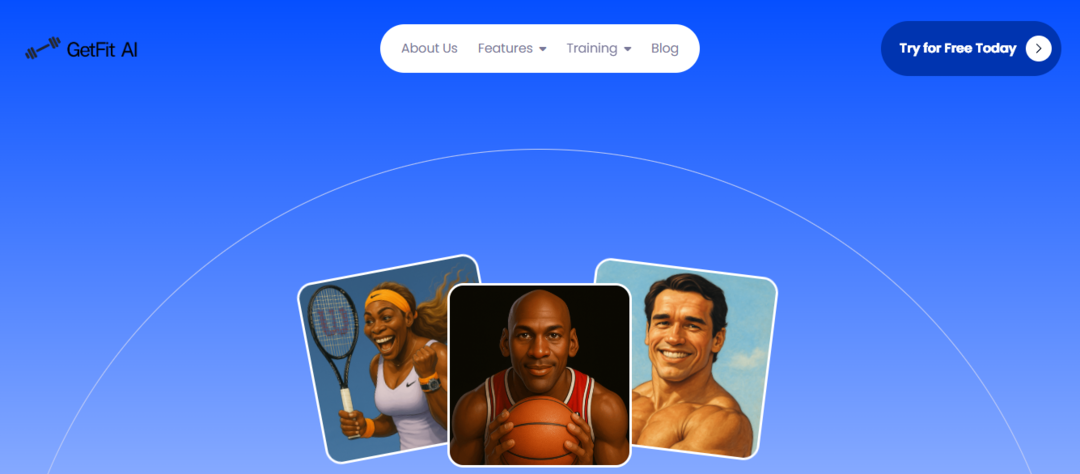
GetFit AI is an advanced, AI-powered fitness app that offers personalized workouts inspired by the exact training routines of legendary athletes for motivation and workout customization. The app uniquely combines celebrity training programs for both men and women with AI customization, providing tailored workouts that adjust in real time based on your progress, injuries, and readiness. Users can also engage in conversational coaching with AI versions of these athletes for motivation, form corrections, and advice. This interactive coaching ensures workouts remain safe, effective, and aligned with individual goals, making elite-level training accessible for all fitness levels.
Key features
- AI-driven personalized workout and nutrition plans
- Training based on elite athlete routines and techniques
- Interactive motivational chats with athlete-inspired AI coaches
- Wide variety of training types: strength, bodybuilding, conditioning, sport-specific
- Simple photo body scan for tailored fitness profiling
- Suitable for beginners to advanced users with customized progressions
- Option to train at home or in gym settings
- Helps maintain consistency with scheduling and reminders
- Free trial and subscription model
Pros
- Combines elite athlete training with cutting-edge AI personalization
- An interactive and motivational coaching experience feels authentic and specific
- Ensures safety with built-in recovery and intensity management
- Suitable for beginners through advanced users seeking structured, expert-level training
- More affordable than traditional gym memberships or personal trainers
Best For
- Fitness enthusiasts wanting to train like professional athletes
- Users seeking personalized, adaptive workout programs with expert guidance
- Those who benefit from motivational AI interaction and detailed progress tracking
- Beginners looking for a safe entry into intensive workout routines with expert adaptation
- Athletes aiming to push their limits with data-driven, high-quality training plans
2. TRX
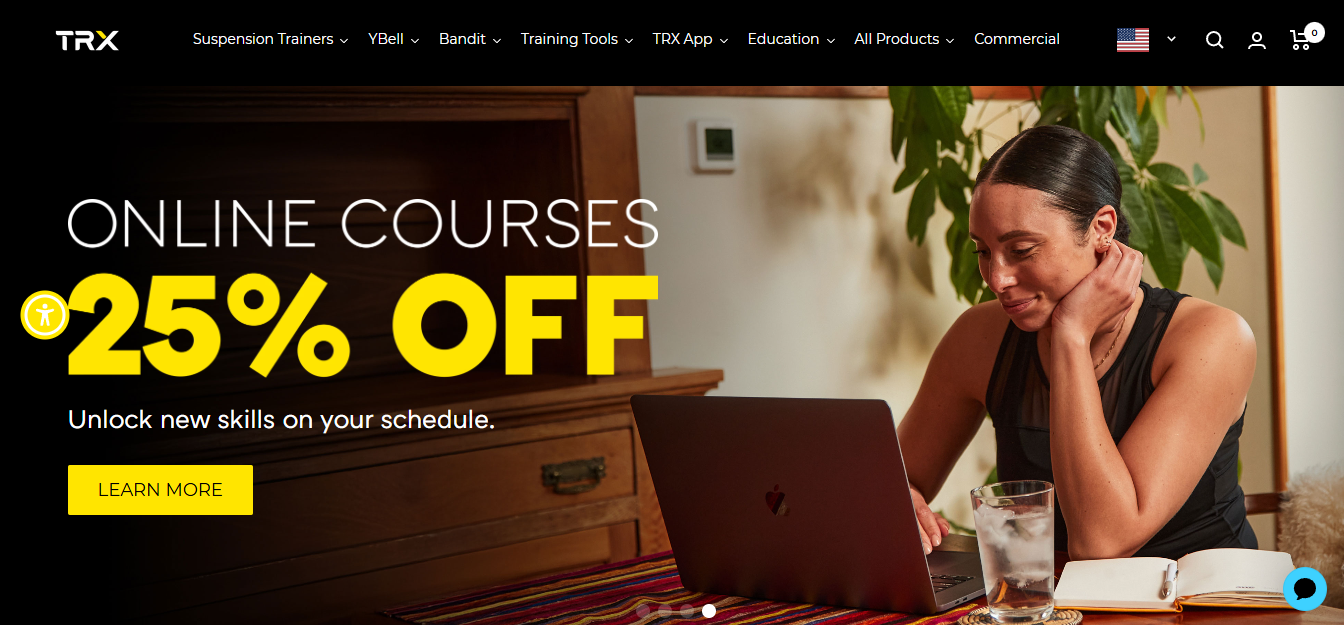
The TRX app functions as a versatile, pocket-sized personal trainer, specializing in suspension training and offering a wide range of workouts, including strength training, HIIT, cardio, yoga, and Pilates. It includes sport-specific coaching for activities like golf, pickleball, and running. Users can join live classes or access on-demand videos, with fresh content added weekly. The app offers over 50 multi-week fitness programs, allowing users to filter workouts by length, intensity, and target area.
Key features
- Suspension training plus strength, HIIT, cardio, yoga, and Pilates workouts
- Sport-specific coaching options (golf, pickleball, running, etc.)
- Live classes with real-time coaching and global community engagement
- Extensive on-demand video library with filters for quick access
- Membership subscription after a 14-day free trial
3. Peloton

Peloton's app extends beyond its famous bike to provide access to thousands of live and on-demand classes in various disciplines, including treadmill running, indoor cycling, HIIT, meditation, yoga, and walking. Users can pursue goal-oriented fitness programs lasting 4 to 18 weeks, focusing on objectives like core strengthening or marathon training. No equipment is necessary to use the app, which provides a 30-day free trial..
Key features
- Live and on-demand classes spanning various cardio, strength, and mindfulness activities
- Structured 4- to 18-week programs aimed at specific fitness goals
- Accessible without owning Peloton hardware
- Social engagement and community motivation features
- Free trial and subscription model
4. Volt
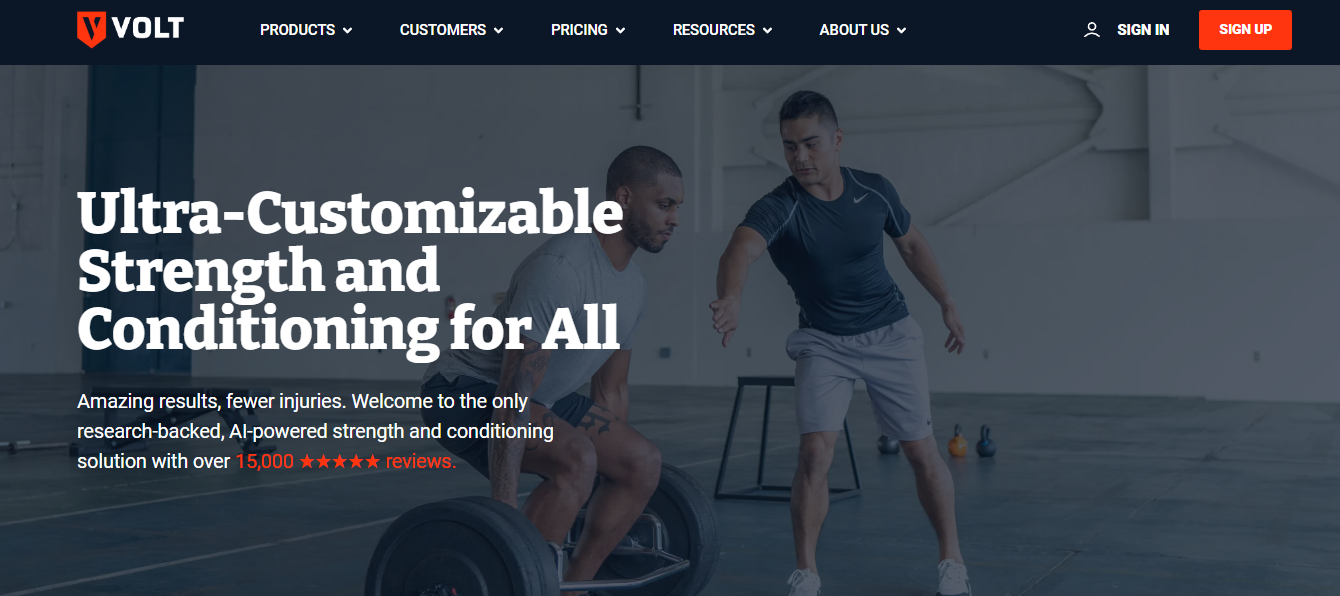
Volt offers AI-powered workout plans with weekly updates designed to keep gym routines exciting and adaptive. It supports more than 40 sports and fitness activities, ranging from cycling and half-marathons to tennis, soccer, snowboarding, and swimming. Users receive tailored workouts suitable for their sport and fitness level. Available on iOS and Android, it is free with options for in-app purchases.
Key features
- AI-driven, weekly-evolving workout plans
- Programs tailored for over 40 sports and activities
- Focus on varied athletic training and conditioning
- Suitable for beginners to advanced athletes
- Free with premium upgrades available
5. Reflectly
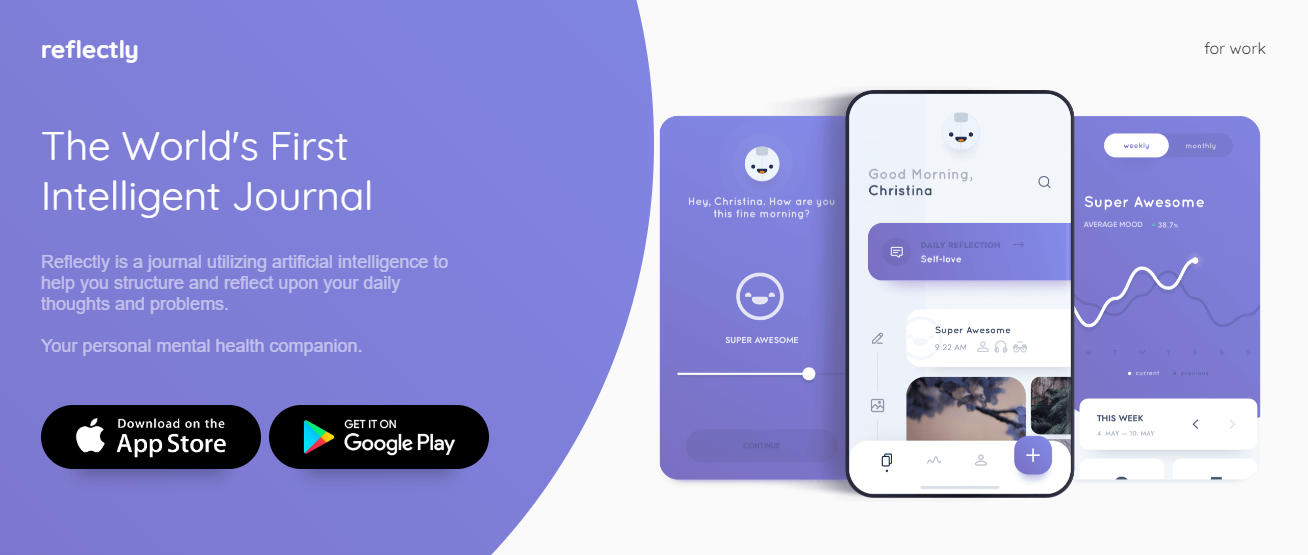
Reflectly is an AI-driven wellness journal app focusing on mental health through tools inspired by positive psychology, mindfulness, and cognitive behavioral therapy. It helps users process emotions, enhance self-awareness, and cultivate gratitude through daily prompts, guided reflections, and mood tracking. Available on iOS and Android, it offers a seven-day free trial.
Key features
- Daily journaling prompts and mood tracking
- Techniques based on positive psychology and CBT
- Focus on emotional clarity and mental wellness
- User-friendly interface for reflective writing
- Free trial with subscription options
6. FitBod Workout & Fitness Plans
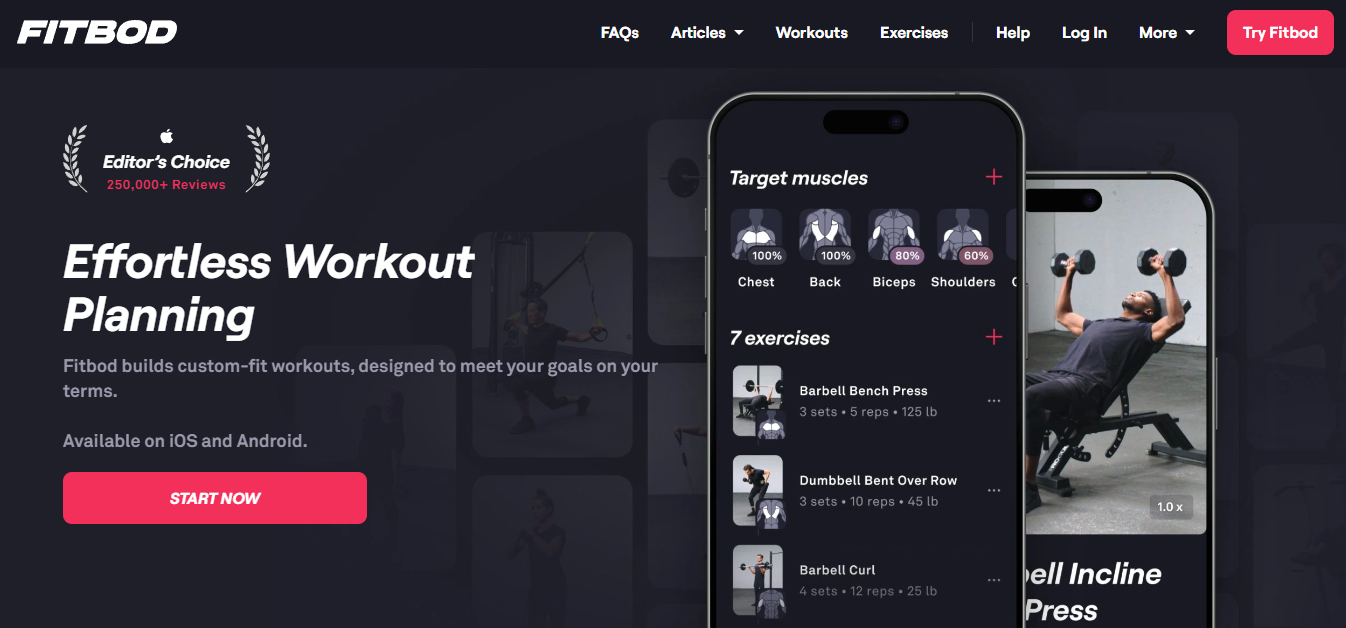
FitBod creates customized strength-training plans tailored to past workouts, current strength levels, available gym equipment, and individual goals. It offers a variety of formats, including bodybuilding, powerlifting, and Olympic weightlifting. The app adapts as users progress, continually challenging their strength development. Available on iOS, it is free with optional in-app purchases.
Key features
- Personalized strength-training programs
- Formats include bodybuilding, powerlifting, and Olympic lifting
- Integration with the user’s workout history and equipment availability
- Progressively adapts workout difficulty
- Free with in-app purchase options
7. Pliability

Pliability is a unique workout app focusing on mobility and flexibility, tailored for athletes and performance enthusiasts. It offers an extensive collection of premium stretching, recovery, and mobility routines. The app also features a special body-scanning tool that helps identify mobility restrictions, making it highly personalized for users seeking to enhance their range of motion and reduce pain. It is available on iOS, Android, and web, offering a 7-day free trial.
Key features
- Extensive video library targeting flexibility and recovery
- Custom daily mobility programs updated regularly
- Unique body-scanning to spot mobility limitations
- Focuses on reducing pain and enhancing the range of motion
- Suitable for all fitness levels, from athletes to casual users
8. Nike Training Club
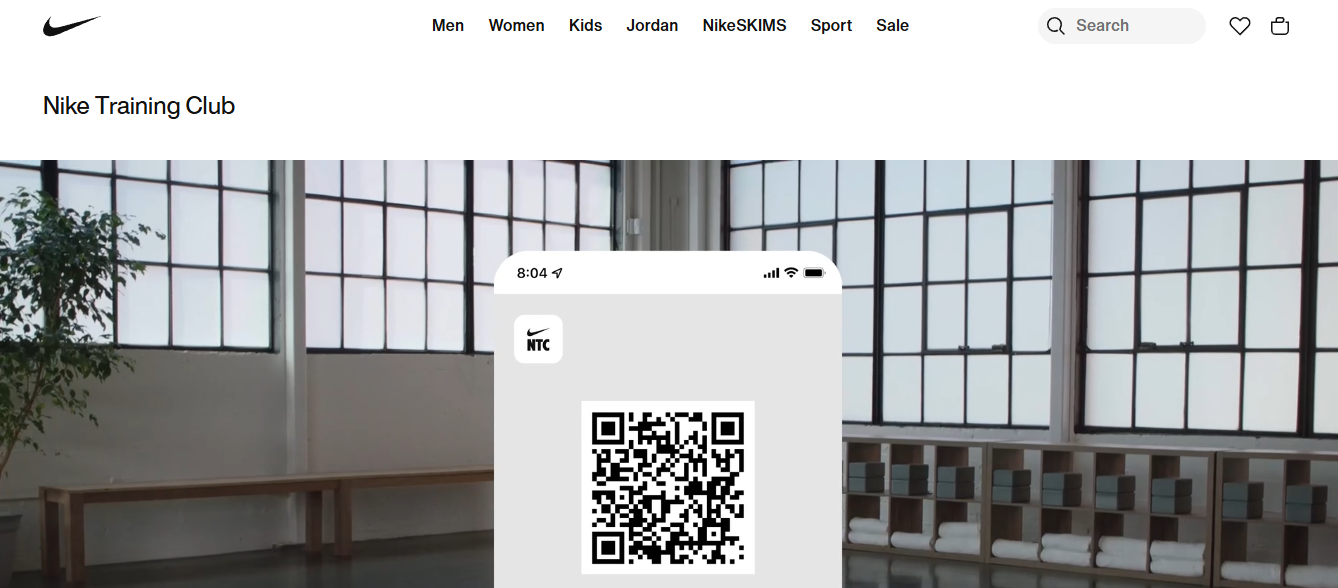
Nike Training Club is an extensive personal training app offering over 185 free workouts that span strength, endurance, yoga, and mobility training. It delivers virtual coaching from Nike Master Trainers and adapts suggested workouts based on your logged sessions. The app is user-friendly and visually appealing, though it lacks deeply personalized coaching plans. It supports no-equipment workouts, making it accessible for home and gym use.
Key features
- Extensive workout library with daily personalized recommendations
- Workouts from Nike Master Trainers, including strength and yoga
- Equipment-free workout options for at-home convenience
- Smooth, aesthetically pleasing user interface
- Free with optional in-app purchases for additional content
9. Adidas Training by Runtastic
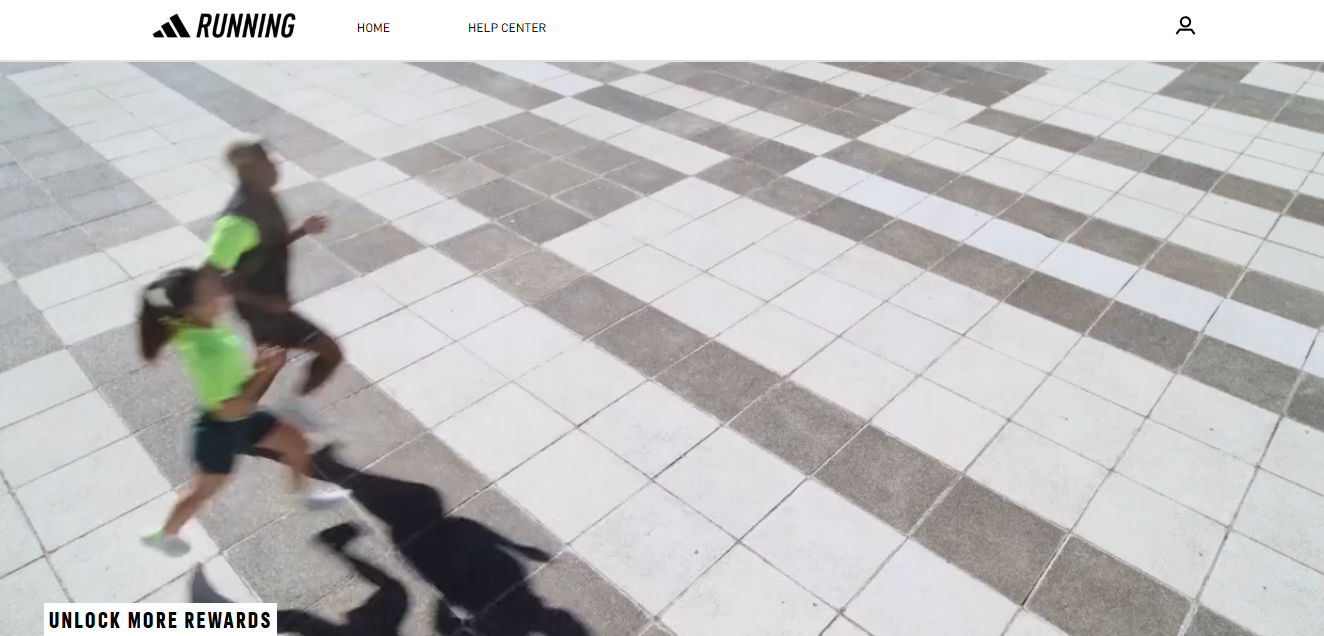
This app is ideal for quick and effective workouts ranging from 7 to 45 minutes. It offers a vast exercise library with over 180 exercises and includes a Workout Creator tool to customize sessions based on your specific fitness goals. The app is designed to fit into busy schedules and requires minimal equipment, making it convenient for all users. Adidas Training is free to use, with in-app purchase options available.
Key features
- Flexible workout durations from 7 to 45 minutes
- Over 180 standalone exercises targeting different muscle groups
- Custom workout creation feature tailored to users' goals
- No or minimal equipment needed for many workouts
- Available on both iOS and Android platforms
10. Burpee Be Stronger

For those who love burpees or want to get stronger through this total-body move, this app centers entirely on burpee challenges. It offers varying difficulties and lengths of challenges to elevate stamina and strength. Its focus on a single, effective exercise makes it a niche but powerful tool for fitness enthusiasts. It is free with optional in-app purchases and available on iOS and Android.
Key features
- Specialized in burpee-based workouts and challenges
- Different difficulty levels for various fitness stages
- Focus on full-body strength and cardio conditioning
- Motivational challenges to build consistency
- Free download with optional paid features
11. 30 Day Squat Challenge

The 30 Day Squat Challenge app offers a structured month-long workout focusing on squats with 13 variations across six workouts. It's designed for gradual intensity increase, making it suitable for all fitness levels. Users can track progress, get reminders, and share achievements socially. It integrates with Apple Health for recording energy and workouts. Available free on iOS, it encourages building leg and glute strength with rest days included.
Key features
- 30-day squat exercise plan with gradual intensity rise
- 13 squat variations in 6 different workouts
- Progress tracking and notifications to stay motivated
- Integration with Apple Health for fitness data
- Social sharing options for achievements
12. Sworkit
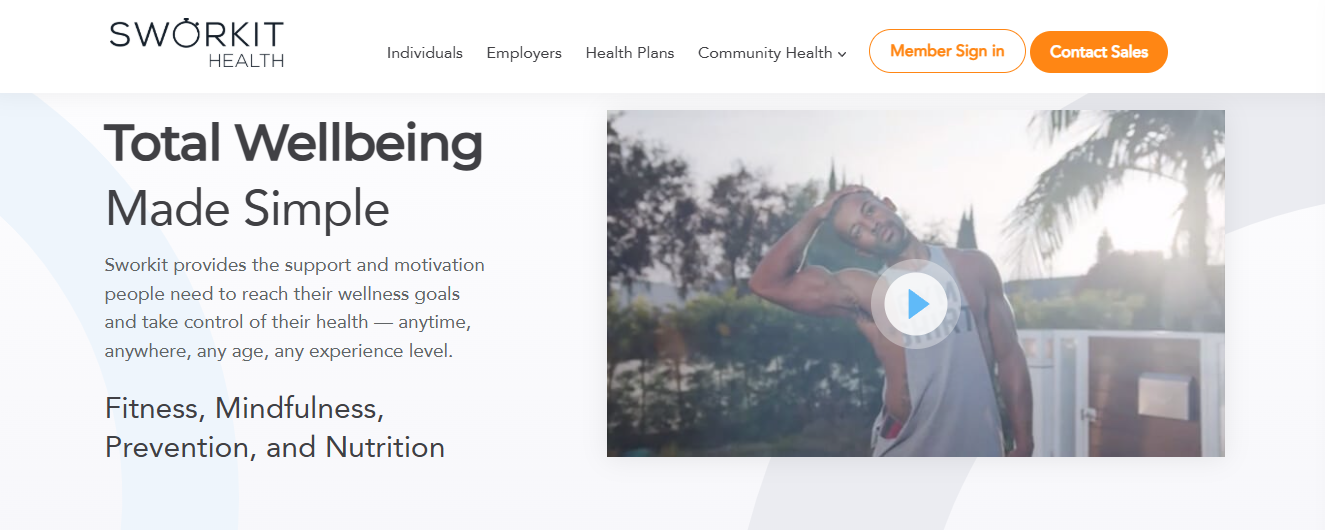
Sworkit focuses on core strength, offering specialized workouts that target the abs, back, and overall core muscles. It features video demos by personal trainers to ensure proper form. Users can select different workout styles and durations, making it adaptable to various fitness levels. Available on iOS and Android for free with optional purchases.
Key features
- Core-focused workout categories: abs, back, full core
- Professional trainer video demonstrations
- Flexible workout durations and types
- Suitable for all fitness skill levels
- Free with optional in-app purchases
13. Daily Yoga

Daily Yoga offers extensive yoga content, including over 50 plans, 500 poses, and 200 classes with HD videos spanning all fitness levels. It allows users to customize session length from 5 to 70 minutes. The app supports mindfulness and flexibility with practices suitable for both novice and advanced yogis. Free on iOS and Android, with premium options available.
Key features
- Over 50 yoga class plans and 500+ poses
- 200+ HD video classes for all levels
- Adjustable session lengths (5 to 70 minutes)
- Supports mindfulness and physical flexibility
- Free access with in-app purchases
14. Shine: Calm Anxiety and Stress

Shine focuses on mental wellness with daily affirmations, self-care advice, and meditation podcasts. The app offers sleep stories, calming music, gratitude exercises, and over 500 guided meditations to reduce anxiety and stress. It provides a personalized wellness experience with a free trial and a monthly subscription. Available on iOS and Android.
Key features
- Daily mental wellness messages and affirmations
- Self-care guidance and meditation podcasts
- Sleep-inducing stories and soothing music
- Gratitude exercises and 500+ guided meditations
- Seven-day free trial and subscription options
15. Yoga for Beginners

Yoga for Beginners is designed to ease newcomers into yoga with gentle, accessible workouts. Users learn basic poses and stretches with simple, quick routines that require no flexibility prerequisites. The app promotes gradual learning with beginner-friendly exercises available for free on iOS and Android.
Key features
- Beginner-friendly yoga sessions and poses
- Quick and straightforward routines for ease of practice
- No prior flexibility needed
- Focuses on gentle stretching and posture
- Free on major mobile platforms
16. Daily Workouts: Home Trainer

Designed for home exercisers, this app guides users through over 100 easy-to-follow exercises like donkey kicks and bicycle crunches. It offers targeted workouts lasting between 5 and 10 minutes, as well as the option for randomized 10- to 30-minute full-body sessions. The app is ideal for beginners or those who prefer straightforward routines without gym equipment, and is available for free on iOS and Android.
Key features
- 100+ simple exercises requiring no gym equipment
- Short targeted workouts for quick sessions
- Randomized full-body workout option (10-30 minutes)
- Suitable for beginners and exercise introverts
- Free across major mobile platforms
17. Freeletics

Freeletics is a versatile fitness app that offers users access to guided single exercises, full workout routines, and guided runs without requiring a credit card for the free version. It provides coaching and training programs tailored to your fitness level, making it an excellent choice for those seeking an interactive workout app experience. The paid version pairs users with personalized coaching plans for more tailored results. It is available for both iOS and Android.
Key features
- Access to an extensive library of guided workouts and runs
- Personalized coaching plans available with subscription
- Suitable for bodyweight and high-intensity interval training (HIIT)
- Free to download with optional in-app purchases
- Community features for motivation and support
18. Nike Run Club
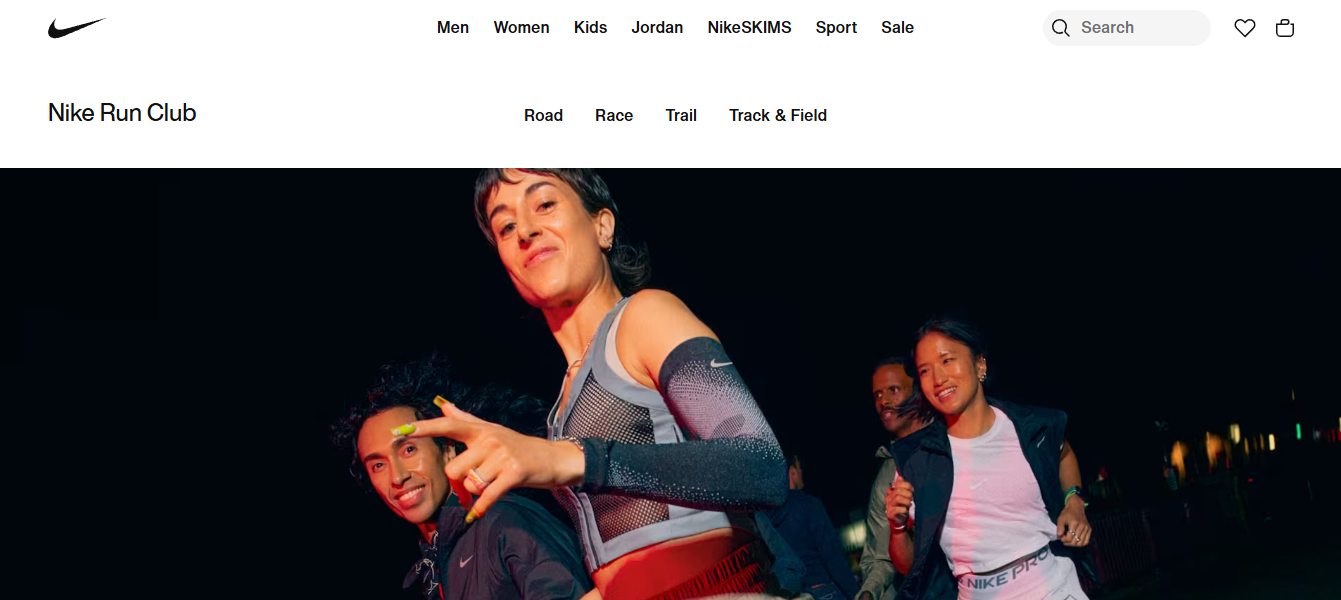
Nike Run Club is tailored for runners of all levels, offering GPS tracking, distance challenges, and customized coaching plans. It provides audio-guided runs narrated by Nike trainers, athletes, and celebrities like Mo Farah and Kevin Hart. The app also features motivational elements and social sharing to encourage consistency in training. Available free on iOS and Android, it is a robust tool for anyone training for running events or general fitness.
Key features
- Accurate GPS tracking and distance challenges
- Customized coaching plans for various race distances
- Audio-guided runs with celebrity and professional trainers
- Social features to compete and share progress with friends
- Free on iOS and Android platforms
19. Map My Fitness

Under Armour’s Map My Fitness app offers extensive training plans, ranging from 5Ks to marathons, as well as workout tracking and community challenges. It features a vast library of running routes worldwide, enabling users to discover new trails or explore local running paths. The app also supports syncing with numerous wearables. It is free, with options for in-app purchases, and works on both iOS and Android devices.
Key features
- Extensive running and workout plans for various skill levels
- Large worldwide route library for running and cycling
- Community challenges to motivate participation
- Syncs with fitness trackers and smartwatches
- Free with optional premium features
20. Glo
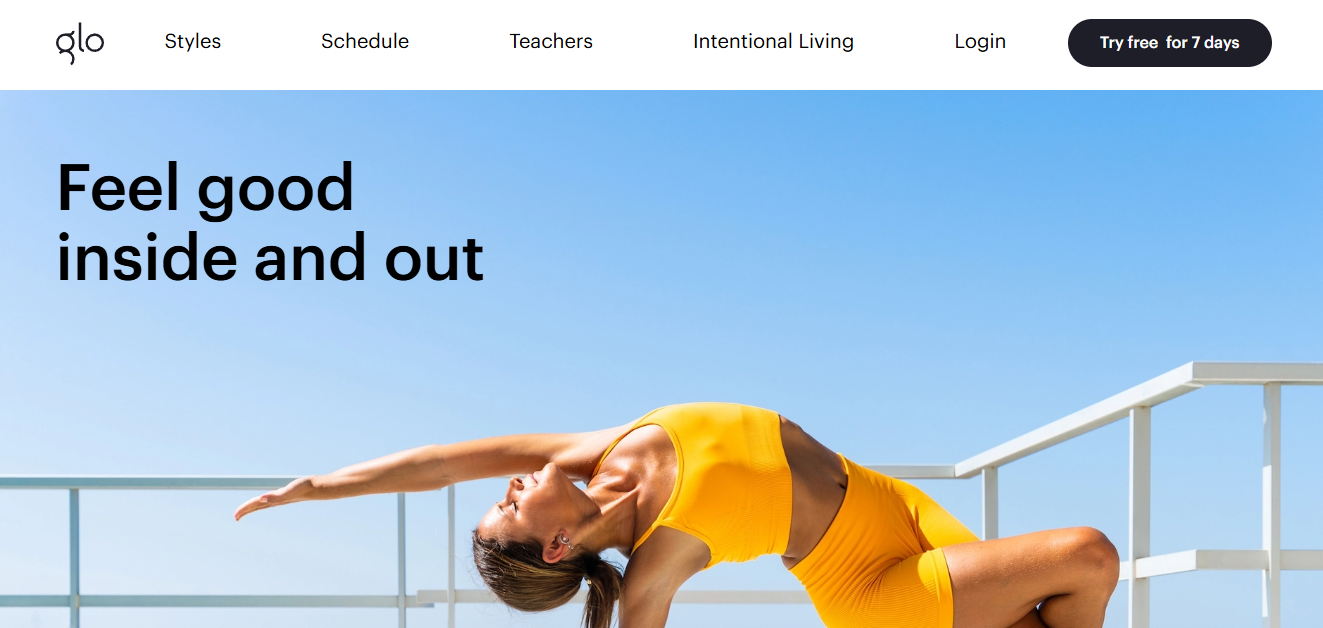
Glo offers a blend of guided yoga, Pilates, and meditation sessions led by globally recognized instructors. Its classes range from stress-relief breathwork and meditation to dynamic yoga flows and cardio fusion workouts. The app nurtures both physical fitness and mental wellness, providing a holistic approach. It is available on iOS and Android, with a free trial followed by a monthly subscription.
Key features
- Classes in yoga, Pilates, and meditation
- Led by world-renowned teachers
- Wide range of session types from relaxation to cardio fusion
- Focus on both body and mind wellness
- Free trial and subscription-based access
21. Down Dog

Down Dog promises a unique yoga experience every session with over 30,000 customizable class configurations. Users can choose from various yoga styles (vinyasa, hatha, restorative, yin, and ashtanga), session lengths, and instructor voices. The app is highly praised for its adaptability to all skill levels, beginner to advanced. Available on iOS and Android, it offers a free trial and a monthly subscription.
Key features
- Over 30,000 unique yoga session variations
- Customizable practice, including style, instructor, and duration
- Suitable for beginners through advanced practitioners
- Access to yoga, barre, pilates, HIIT, and meditation apps under one login
- Subscription-based with free trial options
22. Lotus Yoga & Workout
/image
Lotus Yoga offers a comprehensive collection of over 450 yoga poses, each accompanied by detailed illustrations, safety notes, and descriptions of their benefits. Users can create custom flows or follow from 100+ guided yoga and meditation workouts. The app supports flexibility and creativity for users at any level. It is free, with optional in-app purchases, and is available on iOS and Android.
Key features
- Extensive yoga pose library with detailed instructions
- Ability to create custom yoga flows
- 100+ guided yoga and meditation workouts
- Safety tips are incorporated with each pose
- Free with in-app purchase options
23. Asana Rebel
Asana Rebel helps users achieve wellness goals through yoga, HIIT, sleep assistance, moving meditation, and productivity-boosting playlists. It offers diverse workouts that can be done anywhere, promoting holistic health benefits. The app is free, with optional in-app purchases, and is available on both iOS and Android.
Key features
- Combination of yoga, HIIT, and meditation workouts
- Sleep assistance and productivity playlists
- Designed for flexible, anywhere workouts
- Targets holistic wellness and fitness goals
- Free access with in-app purchases
24. Find What Feels Good
This app features Yoga With Adriene and includes videos, guided meditations, calendars, and support for accountability. It offers a subscriber-only vlog, designed to encourage a sustainable daily yoga practice for its users. It's available on iOS and Android with a seven-day free trial and subscription.
Key features
- Yoga videos and guided meditations by Adriene Mishler
- Calendar and accountability features for consistency
- Subscriber-only vlogs and motivational content
- Encourages daily yoga practice habits
- Free trial with subscription options
25. Strava
Strava is favored by runners, cyclists, and hikers for its comprehensive tracking and social features. It offers real-time performance stats and a safety beacon feature to share your workout location with trusted contacts. The app supports competing against others through leaderboards and route challenges. Available for free on iOS and Android, Strava’s mix of social engagement and advanced data features appeals to serious fitness enthusiasts.
Key features
- Advanced GPS tracking and detailed performance analytics
- Social networking features with groups, clubs, and challenges
- Safety beacon for real-time location sharing
- Leaderboards for competing with friends and other athletes
- Free with option for in-app purchases
26. C25K 5K Trainer
C25K helps beginner runners train for their first 5K through a gentle eight-week program mixing running and walking intervals. The app pairs training sessions with curated music from popular DJs to help maintain high motivation. Its gradual approach reduces injury risk and builds fitness steadily. The program is free, with in-app purchase options, and is available on iOS and Android platforms.
Key features
- Eight-week beginner-friendly run/walk training plan
- Motivational music integrated into workouts
- Step-by-step coaching to build running endurance
- Perfect for new runners aiming to complete a 5K
- Free download with optional paid content
27. AllTrails: Hike, Bike & Run
AllTrails is ideal for outdoor enthusiasts seeking to explore hiking, mountain biking, and trail running. The app features over 100,000 maps with reviews and photos from millions of users. It allows you to filter trails by dog-friendly, kid-friendly, and wheelchair-friendly options, making outdoor exercise accessible to everyone. The app is free with in-app purchases and available on both iOS and Android.
Key features
- Over 100,000 trail maps for various activities
- User-generated reviews and photos for trail guidance
- Filters for dog-friendly, kid-friendly, and wheelchair access
- Helps users discover new local and global trails
- Available for free with optional in-app purchases on major platforms
28. Zombies, Run!
Zombies, Run! transforms running into an entertaining, immersive game where users listen to a zombie-themed audio drama while running or walking. As you progress, you complete missions like collecting supplies and evading zombie chases that dynamically respond to your pace. The app adapts to your speed and route, motivating you to keep moving without making you stop or slow down. It’s free with premium options, available on iOS and Android.
Key features
- Engaging audio story-driven running game
- Dynamic zombie chases requiring pace changes
- GPS tracking and step counting with adaptive workouts
- Works with your music playlists
- Free to use with in-app purchase options
29. Seven: Home Workout & Exercise
Seven is designed for those short on time who want effective workouts lasting only seven minutes. It offers quick routines with video tutorials and step-by-step instructions, requiring no equipment. This app is ideal for busy women seeking convenient, high-impact workouts that can be done anytime and anywhere. It’s free with optional in-app purchases on iOS and Android.
Key features
- Quick, seven-minute workout sessions
- Video tutorials ensure correct exercise form
- No equipment needed for all exercises
- Variety of routines targeting different muscle groups
- Free with option for in-app purchases
30. Splits Training
Splits Training is a specialized app designed to improve flexibility, to achieve full splits through guided stretching routines. The app offers a 30-day structured plan suitable for beginners and advanced users, incorporating over 13 different stretches. Video tutorials provide clear instructions, and progress tracking helps maintain motivation. With no equipment needed, it emphasizes flexibility, mobility, and injury prevention. It is available for free on iOS and Android, with in-app purchase options.
Key features
- 30-day split training program with daily stretching exercises
- Combines static and dynamic stretches targeting the hips, hamstrings, quadriceps, and back
- Video demonstrations with step-by-step guidance
- Progress tracking, including weight/logging and before/after photos
- Offline access and no data collection for user privacy
31. Yoga Wake Up
Yoga Wake Up is a unique app that combines an alarm, meditation, and yoga flow with audio-guided sessions designed to be done from bed. It helps build a morning routine that feels calming and refreshing, replacing harsh alarms with gentle yoga and meditation flows from 5 to 15 minutes. The app is free with in-app purchase options and available on iOS and Android.
Key features
- Audio-guided yoga and meditation flows are ideal for mornings
- Pocket-sized sessions lasting 5 to 15 minutes
- Designed to be practiced from bed
- Combines an alarm clock with wellness routines
- Free to download with optional upgrades
32. The Sculpt Society
The Sculpt Society, created by celebrity trainer Megan Roup, is a dynamic fitness app blending sculpting, dance cardio, and strength training. This platform offers a wide array of workouts catering to all fitness levels, including prenatal and postnatal options. It features over 1,000 on-demand classes and multiple live sessions each week, covering low-impact sculpting, high-energy dance cardio, yoga, stretching, and meditation. The app supports offline viewing and regularly adds new content. Available on iOS and Android, it includes a free trial with in-app purchases..
Key features
- Extensive library of sculpting, dance cardio, strength, yoga, and meditation workouts
- Programs for all fitness levels, including prenatal and postnatal
- Over 1,000 on-demand classes and live classes weekly
- Workouts vary from 10 to 45 minutes, with equipment options for advanced training
- User-friendly with offline video downloads and global streaming access
33. JEFIT
JEFIT is a gym-oriented app that offers over 1,400 exercises, complete with video instructions, equipment requirements, and form tips. It provides free gym logs and body statistics tracking, while premium plans offer comprehensive workout routines designed by professionals. The app aims to inspire gym-goers to maintain motivation and track progress effectively. It is available for free on iOS and Android, with optional in-app purchases.
Key features
- Extensive free exercise library with form videos
- Workout tracking with gym logs and body stat recording
- Professional workout plans with a premium upgrade
- Equipment and exercise guidance
- Available on major platforms for free with premium options
34. ClassPass
ClassPass started as a booking platform for studio fitness classes but now offers access to a library of more than 4,000 on-demand workouts, including yoga, barre, HIIT, and cardio classes. Users can filter by workout style, length, and difficulty. It is free on iOS and Android with in-app purchase options.
Key features
- Vast on-demand library with 4,000+ workouts
- Varied classes: yoga, barre, HIIT, cardio
- Customizable by workout length and difficulty
- Streaming access anytime, anywhere
- Free app use with optional purchases
35. Shred: Gym Workout & Tracker
Shred offers thousands of workouts covering diverse styles and durations, suitable for all fitness levels. It aims to help users find ideal workouts daily with options ranging from circuit training to kettlebell and dumbbell workouts. Available on iOS, it offers a free version with in-app purchase options.
Key features
- Massive content library with thousands of workouts
- Wide range of training types and difficulty levels
- Daily workout suggestions tailored to user preferences
- Includes HIIT, bodyweight, strength, and kettlebell workouts
- Free app with paid upgrade options
36. AllTrails
AllTrails is an outdoor activity app focusing on hiking, camping, and exploring nature trails. It provides the best local and national trail recommendations with user reviews and photos. Filters include dog-friendly, kid-friendly, and wheelchair access trails. It’s designed for outdoor enthusiasts wanting to discover new walking or hiking spots. Available free on iOS and Android with optional in-app purchases.
Key features
- Extensive trail maps and outdoor activity guides
- User-generated reviews and photos
- Filters for accessibility and family-friendly trails
- Facilitation of local and travel trail discovery
- Unrestricted use with premium feature options
37. CharityMiles
CharityMiles is a philanthropic fitness app that converts miles walked, run, or biked into money donations for chosen charities through sponsored pledges. It supports individual, team, and company participation and integrates with Apple Health for step tracking. The fun and motivational app is available for free on iOS and Android, with in-app purchases also offered.
Key features
- Converts physical activity into charitable donations
- Supports individual and team challenges
- Integration with Apple Health for step tracking
- Wide variety of supported charities
- Free to use with opt-in sponsorships
38. FitBod Workout & Fitness Plans
FitBod creates customized strength training plans based on user input about fitness level, goals, and available equipment. It offers features such as workout, recovery, and progress logs, with calendar integration and Apple Watch syncing. The app supports a range of training forms, including bodybuilding, powerlifting, and Olympic lifting. It is free on iOS with in-app purchase options.
Key features
- Personalized strength training plans
- Integrated workout, recovery, and logging tools
- Support for bodybuilding, powerlifting, and Olympic weightlifting
- Calendar and Apple Watch sync support
- Free with paid upgrade options
39. Lose It!
Lose It! is a long-standing calorie-tracking and weight-loss app emphasizing health goal setting and nutrition logging. It provides daily summaries of calorie intake, macronutrients, and activity, with motivational tasks. It includes a community feature and an Apple Watch companion app. The basic version is free, with advanced features offered in premium plans.
Key features
- Calorie and macronutrient tracking
- Goal setting and progress monitoring
- Community support and challenges
- Apple Watch integration
- Free with premium upgrade options
40. 5 Minute Yoga
5 Minute Yoga provides short, manageable sessions designed for beginners needing an effective way to incorporate yoga into daily life. Each session includes detailed images and instructions to ensure proper form and technique. The app tracks progress and encourages consistent practice through simple routines. It is free with optional in-app purchases and available on iOS and Android.
Key features
- Beginner-friendly 5-minute yoga sessions
- Visual aids to guide proper alignment
- Progress tracking functionality
- Encourages daily consistency
- Free with optional in-app upgrades
41. Aaptiv
Aaptiv offers audio-based workouts across various categories, including running, elliptical, rowing, strength training, stretching, and yoga. The app updates weekly with 30 new trainer-led, music-driven classes. It appeals to users seeking motivational and varied workouts to break the monotony of their fitness routine. Available free with in-app purchases on iOS and Android.
Key features
- Extensive library of 2,500+ audio-guided workouts
- Includes cardio, strength, stretching, and yoga classes
- Weekly addition of 30 new workouts to keep routines fresh
- Music-driven sessions for enhanced motivation
- Free access with optional subscription upgrades
42. J&J Official 7 Minute Workout
Created by Johnson & Johnson’s Human Performance Institute, this app features 72 exercises and 22 workouts designed by exercise physiology experts. The workouts range in length from 7 to 32 minutes and vary in intensity, offering options for all fitness levels. It’s free and well-reviewed, available on iOS and Android.
Key features
- Exercise routines designed by certified experts
- 72 exercises and 22 different workouts available
- Workout durations from 7 to 32 minutes
- Suitable for beginners and advanced users
- Free access on both iOS and Android platforms
43. Daily Butt Workout
Focusing on strengthening the glutes, this app offers short, 5- to 10-minute workouts that target the lower body. Exercises include donkey kicks, single-leg glute bridges, and plank heel lifts, all doable at home without equipment. It is an ideal app for women aiming to build power in their largest muscle group with convenient workouts. Available free on iOS and Android.
Key features
- Focused lower-body workouts targeting glutes
- Short daily sessions (5-10 minutes)
- Exercises require no equipment and can be done anywhere
- Helps improve strength and muscle tone in the buttocks
- Free on major mobile platforms
44. FitOn
FitOn brings top personal trainers to your fingertips, including well-known coaches like Jeanette Jenkins, Cassey Ho (Blogilates), and Katie Dunlop (Love Sweat Fitness). The app offers a wide variety of workouts across categories, including cardio, strength, HIIT, dance, yoga, Pilates, and barre. FitOn offers flexible workout lengths and intensities, with guided sessions available for free on both iOS and Android. The app also features motivational plans, calendar reminders, and social elements to keep users engaged.
Key features
- Workouts led by celebrity and expert trainers
- Wide range of workout categories, including dance, HIIT, and Pilates
- Free access with personalized workout plans
- Motivational challenges and calendar reminders
- Social sharing and community engagement
45. 8fit Workouts
8fit is a fitness and nutrition app focused on helping users achieve specific goals through customized plans. After assessing your fitness level and goal, it provides short, equipment-free workouts ranging from 15 to 20 minutes. Workouts vary in focus, ranging from endurance and HIIT training to strength training and bodyweight exercises. Available free on iOS and Android with optional in-app purchases.
Key features
- Personalized workout and nutrition plans
- Workouts designed for home with minimal equipment
- Sessions last 15 to 20 minutes for efficiency
- Focus on endurance, HIIT, strength, and bodyweight
- Free with premium upgrade options
46. Sweat: Fitness App For Women
Founded by Australian fitness influencer Kayla Itsines, Sweat offers high-intensity 28-minute workouts led by Itsines and other popular trainers, including Kelsey Wells and Stephanie Stanzo. The app fosters community fitness through global challenges and meal-planning tools. It includes access to multiple workout programs and is available with a seven-day free trial on iOS and Android, followed by subscription options.
Key features
- High-intensity workout programs from famous trainers
- Access to multiple fitness influencer programs
- Community challenges for motivation and support
- Nutrition and meal-planning assistance
- Free trial with subscription options
47. Kettlebell Workouts by Fitify
This app is designed explicitly for kettlebell training, featuring over 45 exercises and five detailed workout programs. It offers voice coaching and high-definition video demonstrations to ensure safe and effective use of kettlebells. Available for free on iOS and Android, it suits users looking to improve their strength and conditioning using kettlebells at home or in the gym.
Key features
- Dedicated kettlebell workout programs and exercises
- Voice coaching with HD video demonstrations
- Focus on proper technique and safety
- Suitable for all skill levels
- Free across major platforms
48. Shred: Home Gym & Workout
Shred is a versatile fitness app offering thousands of workouts across various styles, including circuit training, bodyweight exercises, cardio-strength combos, HIIT, kettlebell, and dumbbell workouts. It caters to those seeking variety and flexibility, with session durations to fit different schedules. The app is iOS-only, offers a seven-day free trial, and has a monthly subscription.
Key features
- Extensive library of diverse workouts and training styles
- Circuit, HIIT, strength, kettlebell, and dumbbell routines
- Designed for variety and flexibility
- Seven-day free trial with a monthly subscription
- iOS exclusive
49. Centr
Centr is a comprehensive fitness app and wellness program founded by Chris Hemsworth. It combines expert-led coaching, personalized training plans, nutrition guidance, and mindfulness exercises to help users train smarter and build lasting healthy habits. Centr offers a wide variety of workouts, including strength training, HIIT, yoga, boxing, and mobility training, suitable for all fitness levels from beginner to advanced.
Key features
- Personalized workout and meal plans adapting to fitness level and goals
- HYROX-certified hybrid race training programs
- Diverse workouts: strength, HIIT, yoga, boxing, mobility, and meditation
- Self-guided audio sessions for hands-free training
- Available on mobile platforms with flexible subscription options
50. Caliber
Caliber is a science-based fitness coaching app that focuses on helping users build muscle, lose fat, and improve their overall fitness through personalized, data-driven programs. The app combines strength training, cardio, nutrition guidance, and habit coaching to create customized workout plans tailored to your lifestyle, fitness goals, and workout history. Caliber features a comprehensive exercise library with over 500 exercises, complete with video tutorials and detailed form instructions.
Key features
- Personalized workout plans combining resistance training, cardio, and nutrition
- 500+ exercise video tutorials with expert tips
- Interactive workout logging with sets, reps, and weight tracking
- Optional one-on-one coaching with elite trainers for customized plans and support
- Suitable for all levels, from beginners to advanced athletes
How should you decide among these apps?
Match the app to the constraint you actually have. If you have 7 to 10 minutes, choose a focused, short-session app; if you need structure for a race, opt for a running- or coaching-centered tool; if you want to get stronger, prioritize apps that include progressive overload and load tracking. Think of apps the way you pick shoes: road shoes for runs, flat shoes for lifting, and sandals for recovery walks. The wrong shoe makes every step harder.
What quick checks save you time when testing an app?
Try this three-step test in your first week: 1) Does the program ask about your equipment, injury history, and goals? 2) Does the plan change when you log missed sessions or fatigue? 3) Is there a clear, measurable progression after four weeks? If the answers are no, you are looking at motivation, not measurable improvement.
A practical path if you are budget-conscious
Start with free tiers that let you complete a full four-week microcycle, not just sample a handful of classes. Use apps that sync with your health data for persistent tracking, and favor programs that offer simple, repeatable metrics, such as sets, reps, and load. If you are over 40 and focused on long-term strength and bone health, prioritize progressive strength templates rather than high-rep class videos, because that shift changes outcomes, not just aesthetics.
You think this is settled, but the next question will expose some surprising gaps between what most apps promise versus what they actually deliver.
Related Reading
- Workout Apps For Women
- Beginners' Workout For Women
- Average Deadlift Weight Kg Woman
- Upper Body Workout For Women
- Leg Day Workout for Women
Do Workout Apps For Women Really Work?
.jpeg)
They work when the app delivers measurable progress, timely feedback, and a routine you can stick to. Apps that convert workouts into clear, repeatable signals of improvement let you know whether you are getting stronger, fitter, or simply more active.
What concrete signs tell you the program is producing results?
Look for objective, repeatable changes, such as lifting heavier loads, exhibiting cleaner movement patterns under load, achieving faster times on a standard interval, or consistently reducing perceived exertion for the same work. Those are the signals that separate entertainment from training, because they measure capability, not just how motivated you feel after a great class.
Why do gains stop for so many women?
This pattern is observed among busy professionals and those balancing family obligations: initial engagement is high, but attendance falls when workouts compete with life's demands, or when a program fails to adapt to missed sessions or fatigue. It is emotionally exhausting to juggle progress with unpredictability, and the real failure mode is inconsistent application of training stress and recovery, not the app itself.
Most people manage their fitness through trial and error because it feels low risk, but that creates a hidden cost. As they switch between programs, progress fragments, and no one tracks the small, cumulative steps that build strength and skill. Solutions like GetFit AI recognize that problem and offer athlete-tested routines plus conversational AI coaching that adjusts intensity, substitutes exercises when equipment or time changes, and provides on-demand technique cues. Hence, the program behaves like a coach who never forgets your last session.
What does broader evidence show about outcomes?
Women make up nearly 60% of fitness App users, according to "Exploring Female Fitness App Users' Motivations and Perceptions: A Qualitative Study," which explains why product design choices for women shape industry norms. The outcomes appear meaningful for many users, as reported in FitBudd, with 85% of women using fitness apps achieving their fitness goals, a reflection of self-reported goal attainment among app users.
How should you judge whether an app will work for you?
Treat the app like a training partner with three nonnegotiables: it must measure something that matters to your goal, it must adapt when life interferes, and it must create repeatable micro-wins that keep you coming back. Those are the mechanics that turn occasional effort into cumulative change, and they are not guaranteed by slick videos alone.
That shift feels simple until you try to implement it consistently, and that’s where the next set of choices becomes decisive.
Features to Consider When Choosing a Free Workout App
.jpeg)
Select features that safeguard your momentum and make training non-negotiable: look for robust offline playback, accurate wearable and HRV integration, camera-based form feedback, transparent freemium limits, and clear data export and privacy controls. These elements transform an app from a source of short-term motivation into a tool you can rely on week after week.
How does the app handle video under poor connections?
Video quality is not just polish, it is a delivery problem. Prefer apps that stream adaptive video, offer downloadable sessions, and provide low-bandwidth audio-only cues so a shaky cafe Wi-Fi doesn't stop a workout. High-quality, low-latency tutorials also keep people engaged in training, which is reflected in higher retention rates; free workout apps with video tutorials have a 50% higher user retention rate. Consider whether the app allows you to download a four-week microcycle for repeated offline use, as that single capability preserves consistency better than any push notification.
Can the app give helpful form feedback, or just applause?
Basic demo videos teach the move. The difference maker is real-time feedback, not scripted praise. Look for apps that use pose estimation to flag major form faults, offer slow-motion replay, and provide short corrective prompts that you can act on between sets. Those cues reduce injury risk and accelerate technical learning, especially when a coach is not present. Think of it like having a spotter who only corrects what breaks your lift, not someone who narrates every rep.
Will it connect to the data you already rely on?
Integration matters. An app that reads heart rate, sleep, and menstrual-cycle data can modulate session intensity sensibly, instead of asking you to guess how hard to push. Expect simple, documented sync paths for popular wearables, along with an export option that allows you to transfer your progress to another platform without rebuilding six months of history. If the app locks your metrics behind a paywall, that is a soft form of vendor lock-in; demand clear export and portability up front.
How transparent are the limits of the free tier?
It is common to try a free app and discover that essential features are disabled. That friction is exhausting and predictable. Scan the app store description and the settings menu for explicit caps on things like program downloads, coach messages, or export ability. Prefer apps that let you complete a full four-week program on the free tier, not just sample classes, because that is the minimum test of whether a program scales with your life.
What safeguards protect my privacy and data?
Many apps collect a surprising volume of physiological and location data. Look for explicit statements about data use, a clear option to delete your account and data, and minimal third-party sharing by default. If an app requires continuous background location or microphone access without a transparent function, that is a red flag. Data hygiene is a performance feature, not an add-on.
Why does community design matter beyond likes and comments?
Community features should be selective and constructive, not noisy. Well-moderated groups, curated challenges, and coach-led micro-communities sustain motivation in distinct ways; in fact, apps offering community support features experience measurable increases in daily engagement, which is crucial for habit formation. [Apps offering community support features see a 30% increase in daily active users. Prioritize communities with clear rules, active moderators, and purposeful events over open comment sections that dilute accountability and transparency.
A caution about usability and technical friction
This challenge appears across both brand-new users and those well into month two: technical glitches and non-intuitive navigation break momentum and turn a consistent program into a history of half-starts. When the play button lags or a timer resets mid-set, workouts become negotiations instead of routines. Choose apps that report high stability in reviews and that push frequent, minor fixes rather than rare, significant updates.
Most people sign up for free apps because they want simple access and low risk, and that is understandable. Over time, though, the familiar path of switching between apps fragments progress and hides the cost of lost training days. Platforms like GetFit AI offer a different path, keeping a meaningful free tier while providing athlete-tested routines and conversational coaching that maintain continuity when life interrupts your schedule.
Ready to train like the legends and finally achieve the body you've always wanted? GetFit AI's AI fitness trainer app lets you follow the exact workout routines that helped Arnold Schwarzenegger, Kobe Bryant, Cristiano Ronaldo, Serena Williams, and over 11 other elite athletes become champions. You can also chat with them whenever you need guidance or motivation. Download the #1-rated AI fitness app for free today to get fit for less than the cost of a single month's gym membership. Because greatness isn't born, it's built one workout at a time.
That practical gap between what you think will stick and what actually does is where everything changes.
Benefits of Using Free Workout Apps
.jpeg)
Free workout apps do more than save money; they change behavior by lowering friction and providing repeatable prompts that turn intention into action. When they include conversational coaching, the effect is magnified. These platforms often act as habit scaffolds, increasing the frequency and willingness with which people show up to train.
How do free apps actually change how often you work out?
Pattern recognition across user trials reveals that the single most significant driver is reduced decision friction, rather than novelty. When a plan is prebuilt, queued, and timed for your day, you skip the five-minute argument with yourself and just move. A 2023 study, "Importance-performance analysis in fitness apps," documented this in behavioral terms, reporting that users experienced a 25% increase in workout frequency after three months of using free fitness apps, which demonstrates the power of removing small frictions over time. Think of it like installing a shortcut on your phone, not writing a new to-do in your head.
Why do some free apps stick where others fail?
Confidence and ongoing feedback are the difference. When an app provides quick, actionable corrections, substitution options for missing equipment, and a cadence that rewards small wins, motivation compounds. The same 2023 study, Importance-performance analysis in fitness apps, also found that over 60% of users reported increased motivation to exercise after using free workout apps, which ties motivation gains to design choices that make workouts feel more achievable. In practice, short corrective cues and clear micro-goals keep momentum longer than flashy production values.
What makes conversational features so effective?
This pattern appears across habit products beyond fitness: conversational check-ins convert reminders into social accountability. When apps use two-way prompts or on-demand coaching, users treat the experience like a compact relationship, not a calendar item. That shift matters because social-style accountability reduces drop-off, and it converts one-off sessions into a training sequence that actually builds capacity.
Where free apps deliver hidden value, most women notice
Constraint-based thinking is helpful here: if time is the primary constraint, select an app that creates consistent micro-sessions and stacks them into a weekly load; if privacy or comfort is the constraint, choose an app with intense solo coaching and precise data controls. The often-overlooked payback is skill transfer, not just calorie burn. Apps that teach movement language, cue proper joint positioning, and provide simple progressions enable you to carry technique into heavier, gym-based training without guesswork.
Most people accept free apps as stopgaps, but that approach has a real cost, especially when scaling goals. Most users treat free tools as occasional motivation, which works early on. As goals shift from staying active to getting measurably stronger or faster, the familiar approach fragments progress because sessions are neither scaffolded nor adjusted. Platforms like GetFit AI change that pattern by pairing athlete-proven routines with conversational AI coaching, offering substitutions, progressive rules, and on-demand technique cues that help a free-tier user keep training continuity and technical progression even when life interrupts.
A short analogy: a good free app is not a flashy running shoe, it is a well-fitted training shoe that prevents blisters and helps you add miles without thinking about it.
That simple advantage is only the start; what comes next reveals the choices that actually separate a download from lasting progress.
Related Reading
- Full Body Workout For Women
- Workout Routine For Women
- Workout Plans For Women
- Lower Abs Workout for Women
- Arms Workout for Women
- Hiit Workout Women
- Ab Workout Women
How to Choose a Free Workout App
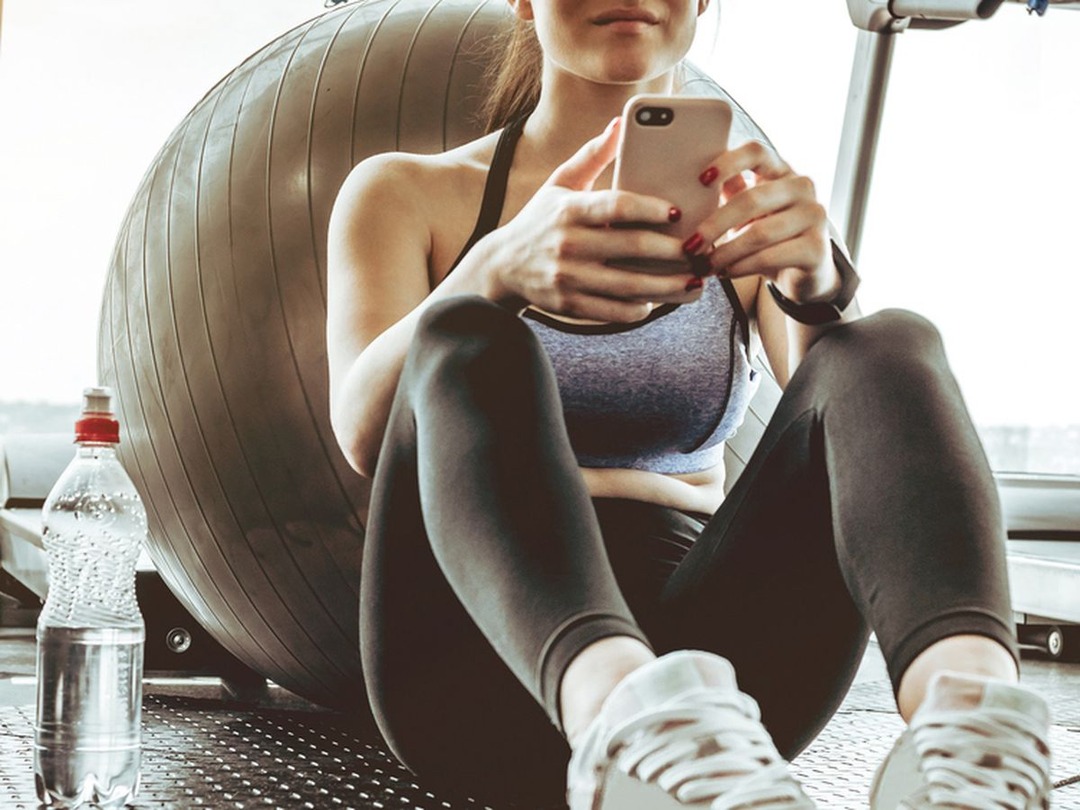
Select an app that measures progress in clear, repeatable ways and adapts when life interrupts, rather than one that only delivers inspiration. Prioritize customizable plans and transparent progression rules, because those are the features that actually turn workouts into measurable change.
How should I judge whether a plan will truly progress me?
Look for baseline assessments and explicit progression rules. Good apps start with a short test week that sets load, tempo, and a strength or time benchmark, then publish how you should expect those numbers to move week to week. Demand visible periodization, defined deloads, and swap logic for missed sessions so that you can see the training prescription, not just a glossy calendar of classes. Think of it like hiring a coach who provides you with a training file, not just a motivational talk.
Why does coach credibility matter?
Check provenance, not PR. When a program claims an athlete or coach wrote it, you should find a sample microcycle, exercise videos that match the athlete’s style, and explanatory notes on why reps, sets, and tempo were chosen. If a routine claims “elite” origins but does not explain progression or testing, treat it as marketing. In practice, programs tied to real athletes are more useful when they include clear scaling rules so you can adapt the same work to your equipment and schedule.
What happens when my week goes off the rails?
This problem appears often for people juggling busy schedules and crowded gym hours: as access and benefits shift, training continuity breaks. A good app anticipates this by allowing automatic substitutions for missing equipment, rescheduling to rebalance weekly volume, and short “salvage” sessions that preserve stimulus rather than cancel progress. Those features turn interrupted weeks into managed variables, not lost months.
Most teams handle flexibility by patching calendars and hoping for the best, but that approach costs momentum. It feels familiar and low friction, yet it creates drift: missed sessions compound, progress stalls, and motivation erodes. Platforms like GetFit AI provide athlete-written routines plus conversational AI that swaps exercises, adjusts intensity after missed workouts, and offers on-demand technique cues, preserving measurable progression instead of letting life erase your gains.
How should I evaluate personalization versus templated plans?
Since 75% of users prefer apps with customizable workout plans, prioritize customization. But don’t confuse simple question-and-fill templates with true personalization. The strongest apps adapt based on your actual logged performance, not just on the answers you provided at signup. Prefer apps that recalibrate loads after each session, propose realistic short-term targets, and let you set constraints like time, noise, and equipment so the program responds to reality.
What keeps you showing up week after week?
Look for measurable micro-wins and nudges that respect your context; the correct pattern is small, repeatable progress plus frequent feedback. Apps that convert consistency into a tracked outcome are essential because users report a 30% increase in workout consistency when using them. Prioritize platforms that give short, actionable cues during sessions, simple metrics after sessions, and a calm coaching voice that makes the next workout feel doable rather than punitive.
How should I judge privacy, portability, and support?
Treat data access like part of the product. Confirm you can export workout history, delete your data, and opt out of continuous sensors that aren’t required for the feature you want. Check whether the app documents third-party sharing and whether support response times are visible in reviews; slow or opaque support often predicts unresolved bugs that break your routine.



.png)
.png)











